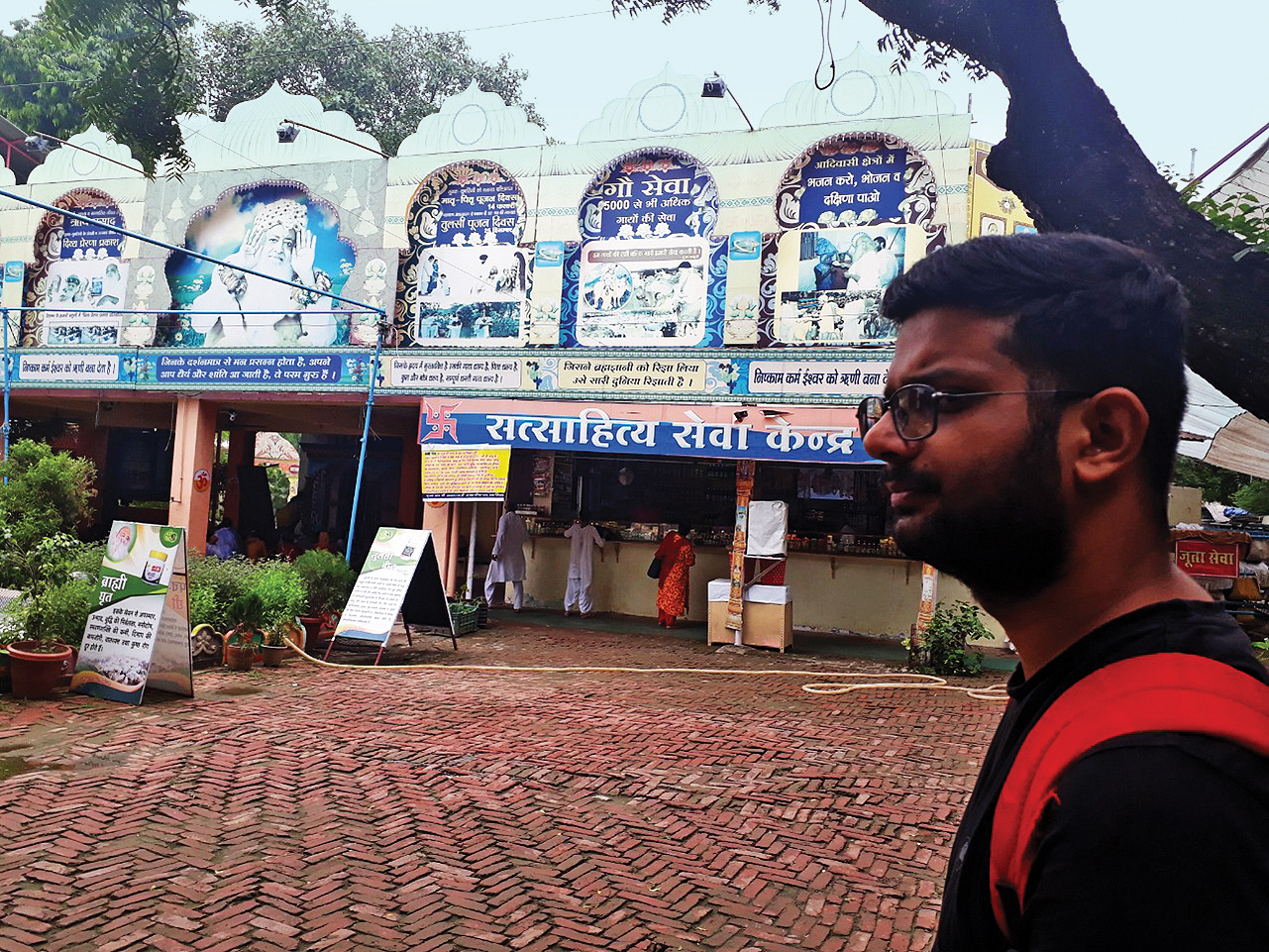A reporter recalls how he wore a cloak of invisibility, hiding his media identity for a story on religious places
Rarely does it happen in the daily routine that one changes one’s identity or goes incognito. For me, this situation stretched over four days when I was working on a ground report on religious paces. ‘Religion is sacred and none shall harm it’ is a famous proverb. I remembered it when I was sitting in the Karol Bagh ashram of Asaram Bapu, who now happens to be a convicted criminal and is lodged behind bars.
On the occasion of Janamashtami (Lord Krishna’s birthday), I visited the ashram to unravel the truth behind the illegal encroachment on forest land by the trust despite a National Green Tribunal (NGT) order ‘to demolish the structure built beyond the allotted land by the Supreme Court.’ While preparing for my visit to the place mulling over how it needs to be done, I decided to wander around the ashram acting like a ‘bhakt’ and taking pictures.
The recorded preaching of Asaram over the big speakers was intrusive but in front of hundreds of his followers and more than a dozen sevaks, none could have protested. He (Asaram) is still a god for them and harming his image would be “criminal.” But this precisely was what I might end up doing with my report.
My aimless wandering was noticed by head sevak Sonu after about 45 minutes. He approached me suddenly, asking “What happened and who are you?” I tried to keep my face deadpan but the first thought which came into my head was, ‘I think they have come to know about me. It’s doomsday, my life is over.’ I followed my second line of thinking — ‘What if he genuinely has no idea?’— and answered, “I am a college student and a devotee of Asaram Bapu.”
It was probably the worst lie I have ever spoken but justified it to myself as necessary to save my life. He asked me to accompany him into a room and closed the door. Luckily, I had switched on my recorder before entering. I had a feeling of dream that my subterfuge could turn to be a grave blunder. I acted like a complete ingenue to ask about the history of the place, while Sonu spoke at length about the land, its development and controversy.
Having succeeded in my first foray, I moved to the Jhandewalan temple of Lord Hanuman where a 108-ft statue welcomes everyone. The plot is like a no man’s land as both New Delhi Municipal Corporation and North Delhi Municipal Council claim that it doesn’t comes under their jurisdiction. The sevak here, Lekhraj, turned out to be a complete bigot. He had been working at the temple for the last four decades.
Talking to him was equivalent to taking a lesson in communalism. It was clear he could go to any lengths to serve the temple and Lord Hanuman. He had a hearing issue and his responses did not come immediately but when I asked about the Delhi High Court suggesting airlifting the statue to another location, he instantly responded looking deep into my eyes, “It’ll be a sin and whosoever commits it, his/her family will be wiped off from this world.”
My question also provoked him into adding a query, “Who are you?” My throat dried up like today’s wells these days and I wanted to run away but we were surrounded by his followers and other sevaks/priests. I calmed them down by saying, “I am a student and have to come to take the blessings of Lord Hanuman for the upcoming semester exam.”
For him, religion in general and the statue in particular were deeply personal. His red eyes seemed to threaten outbreak of communal tension if any situation of relocating or demolishing the statue arose. The sevak also warned me that no official has tried to destabilise the equilibrium of this ecosystem and if anyone, including me, tries anything odd at Jhandewalan, it would attract ill omens that could end in tragedy.
Next halt: Chhatarpur. At this temple, the pujari started counter-questioning me when I asked him about how Nagpal baba (a priest who was the owner of 70-acre land and took samadhi at the site) acquire such a large area for the temple. I introduced myself as a student of English literature and added that I came to know about the temple recently. While he narrated the story of Nagpal baba, he appeared quite doubtful about me but the guru dakshina (donation) eventually saved me.
When I asked if there was any possibility that some day, action would be taken upon the land issue, he said “You see what kind of visitors we have, from politicians to bureaucrats. Hence nothing will happen.” This was true as I saw a National Security Guards (NSG) stickered and flagged car inside the premises. A sense of dread again enveloped me. The irony remained that in the grand temple of Lord Shiva and Hanuman, whom even I bow down to, I was too afraid to linger and decided to make myself scarce.
Reporting on temples and ashrams, especially at a time when the Ram Janmabhoomi title dispute of Ayodhya is sub judice, is a dangerous assignment – not because of the perils which exist in every other subject but due to the blind faith of people who are ready to even commit crimes in order to save the prestige of a convicted criminal.





